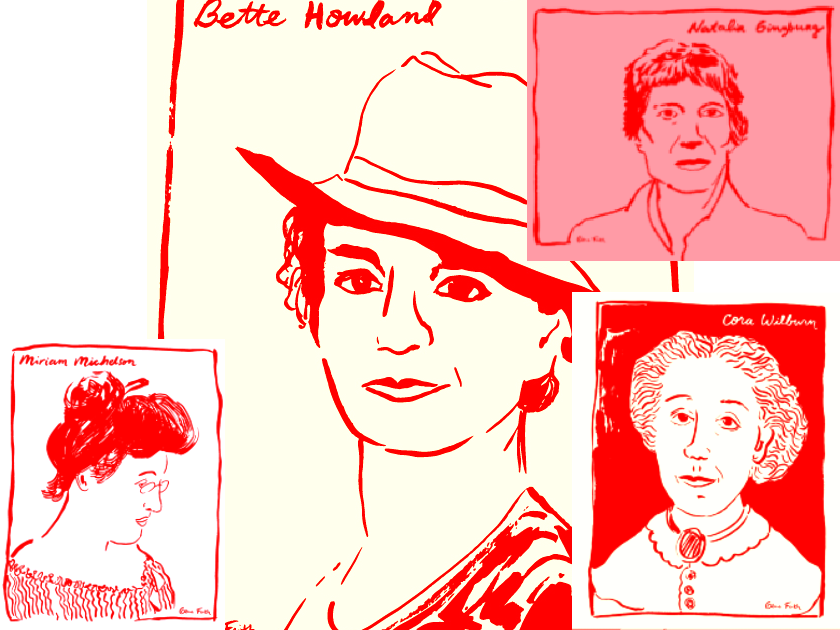
Images by Gena Feith
In traditional Judaism, the concept of kol isha—that a woman’s singing voice is so seductive it will distract even pious men from prayer — encourages women to bear the burden of silence, but doesn’t consider the consequences of women not being heard. In the American Jewish literary canon, we have celebrated the patriarchs of Jewish literature — Singer, Bellow, Roth (so well known that they’re recognizable just from their last names) — but our literary matriarchs have often been overlooked.
Four of these women—Cora Wilburn (1824 – 1906), Miriam Michelson (1870 – 1942), Natalia Ginzburg (1916 – 1991), and Bette Howland (1937 – 2017) — were all active when men still dominated the literary scene. For the reader who wants to understand the Jewish experience beyond the canon of better-known literary figures, fascinating rewards abound thanks to recent publications of these women’s writing. Spanning themes from religion to science fiction to mental illness, their works were revived by scholars, editors, and small presses determined to rescue them from obscurity.
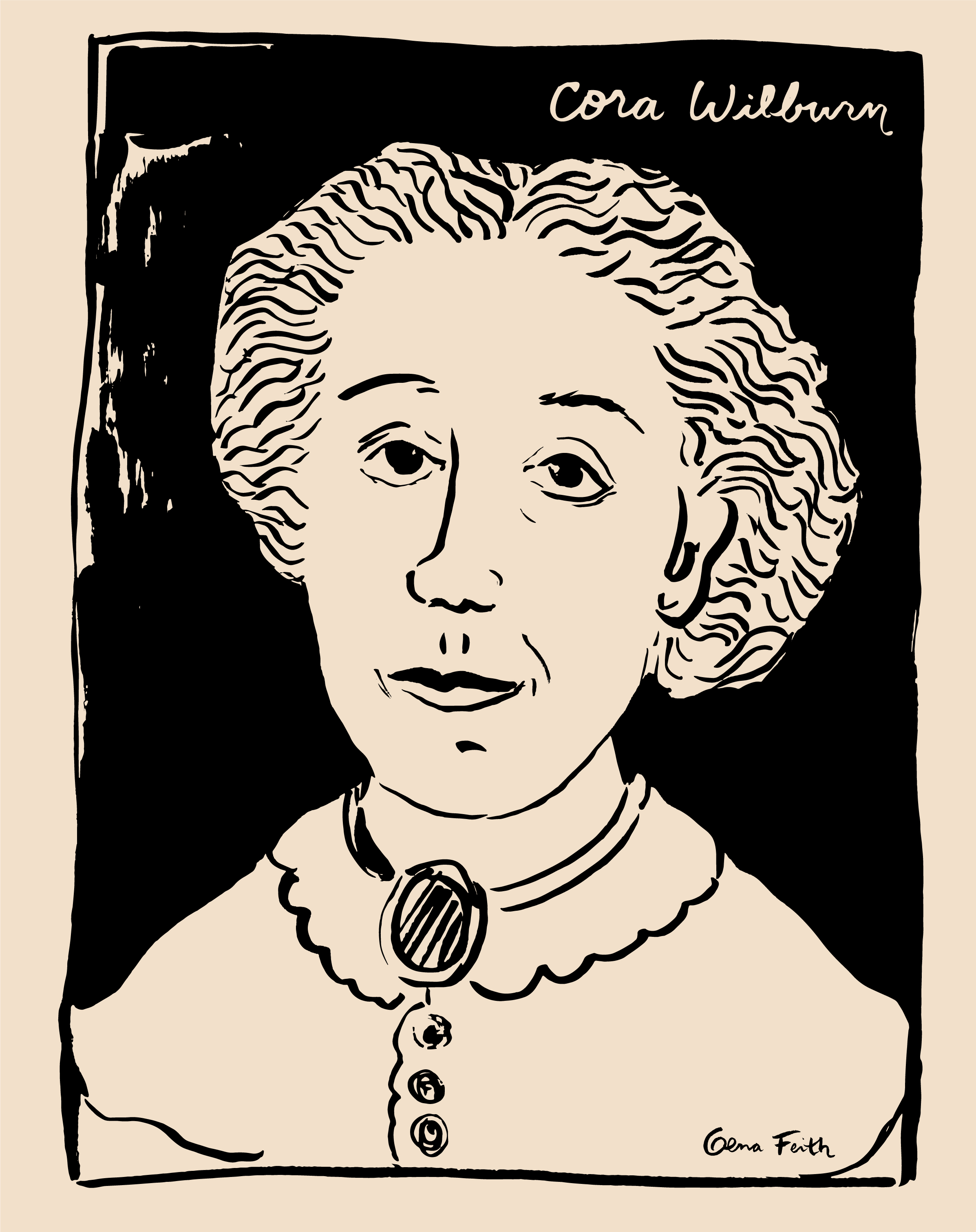
Image by Gena Feith
A new edition of Cosella Wayne: Or, Will and Destiny, written by Cora Wilburn and edited by Jonathan Sarna, was recently published by University of Alabama Press. Sarna was doing academic research when he discovered poetry and other work by Wilburn — a nineteenth-century writer largely forgotten. Likely born in Alsace and originally named Henrietta Pulfermacher, Wilburn survived an abusive father and peripatetic childhood only to find herself penniless and adrift as a young woman after she was orphaned. In 1846, she reluctantly converted to Catholicism, beseeching a “God of Israel” to “save her” in her secret diary. Two years later, she came to Philadelphia in search of a fresh start, but found menial servitude as a domestic worker instead.
Cosella Wayne, Wilburn’s fictionalized account of her experiences, chronicles women’s poverty during an era in which Jews trying to assimilate in America seldom discussed it. Wilburn described servants, and the wealthy families for whom they worked. She sought out stories behind the veneer of gentility, and her study of household tensions made use of her natural skepticism. Wilburn was also an ardent abolitionist, and wrote poetry ablaze with the fire of her activism:
Were I not bound by women’s fate, that keeps
Me here inactive, while man grandly reaps
I would, in Israel’s sweet and holy name,
Help to enkindle the world’s freedom-flame.
The Jewish community eventually supported Wilburn financially and heralded her as a poet; she was published in the Philadelphia Jewish Record, among other periodicals. In the introduction to Cosella Wayne, Sarna gives Wilburn’s story thorough context. He notes that she lived during the early days of liberal, cultural Judaism, which allowed her to remain loyal to both tradition and the progressive causes she held dear.
A forward-thinking spirit is also evident in the work of Miriam Michelson, whose writing has been collected and edited by scholar Lori Harrison-Kahan in The Superwoman and Other Writings by Miriam Michelson.
Michelson, a Californian born to Polish Jewish immigrants, was well-known in her era. A journalist whose articles on the plight of the disenfranchised often appeared on the front page of The San Francisco Call, she also wrote novels and groundbreaking science fiction. Her 1912 novella, The Superwoman, depicted a fictional matriarchal society in which women ruled and men served.
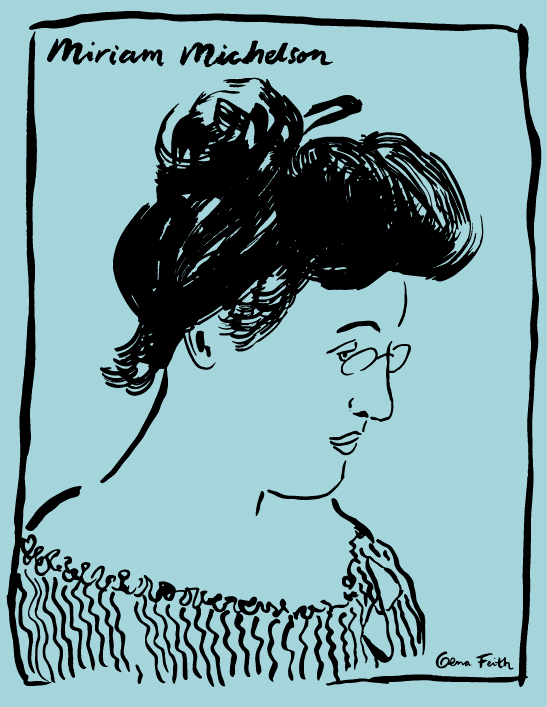
Image by Gena Feith
After Michelson’s parents came to the United States, they ultimately settled in Nevada and became merchants. Several of their eight children rose to remarkable heights. One of Michelson’s brothers, Albert, was the first Jew admitted to West Point, and went on to become the first American awarded a Nobel Prize in science. Another, Charles, held several important posts in Franklin Delano Roosevelt’s administration.
Michelson’s girlhood coincided with the height of the Gold Rush; the zeitgeist of freedom allowed the young writer to create a world for herself outside of the gender constraints of the time, and perhaps inspired her bold literary choices. Establishing herself as a journalist in San Francisco, she focused on everything from the plight of Chinese immigrants there, to lesbian couples, to the Hawaiian independence movement. Harrison-Kahan effectively argues that Michelson’s status as a “girl reporter” allowed her to write stories that might have been too threatening coming from a male journalist. The author also calls Michelson a “frontier feminist,” which is as accurate a description as it is a metaphor.
Although she wrote in a quieter tone, Natalia Ginzburg used her voice to remarkable effect. The daughter of assimilated Italian Jews who were part of the intellectual vanguard fighting Fascism before World War II, Ginzburg married activist Leone Ginzburg, who was imprisoned and tortured to death by the Nazis. She later remarried and converted to Catholicism.
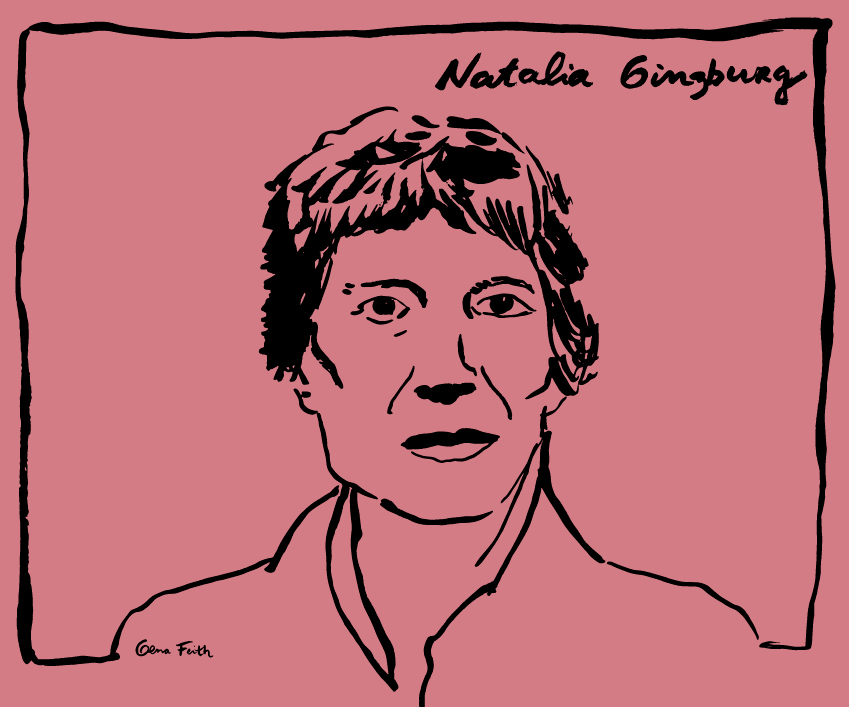
Image by Gena Feith
Ginzburg was elected to the Italian Parliament in 1983, and her work was widely celebrated during her lifetime, though her books fell out of print in English. Now she can be enjoyed again in two vibrant translations from New Directions, The Dry Heart, translated by Frances Frenaye, and Happiness, as Such, translated by Minna Zallman Proctor.
Ginzburg’s writing displays her exquisite gift for pacing, and her ability to hover between melancholy and wry amusement as she reveals the complex underbelly of human connections. On the first page of The Dry Heart, a woman shoots and kills her husband. We then learn that she entered the marriage with the most self-effacing of personalities: “When a girl is very much alone and leads a tiresome and monotonous existence, with worn gloves and very little spending money, she may let her imagination run wild and find herself defenseless before all the errors and pitfalls which imagination has devised to deceive her.”
Even though we know exactly how the novel will end, the protagonist’s transformation continues to keep us in suspense. With radical empathy, Ginzburg demonstrates how abuse can spark subversion — and how that might be the only reasonable reaction to it.
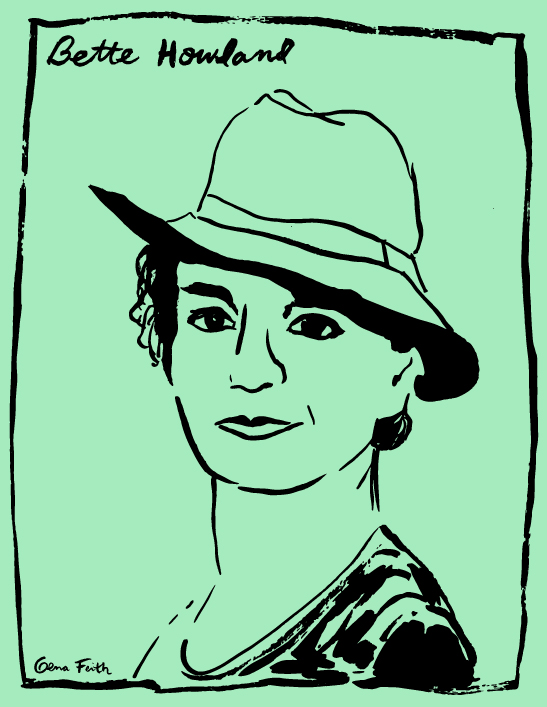
Image by Gena Feith
Bette Howland’s career was less triumphant during her lifetime. While she did garner recognition, including a MacArthur “Genius Grant,” Howland struggled to overcome a number of obstacles, including the repercussions of her affair and friendship with Saul Bellow, which began when she was twenty-four and Bellow was forty-six. Howland’s literary work was often defined in relation to Bellow; when she died at eighty years old, her obituary in The New York Times described her as his “protégée.”
Howland’s life and literary output were also limited by financial struggles, family obligations, and mental illness. In the midst of one of her bouts of depression, Bellow wrote her a letter with this piece of advice: “One should cook and eat one’s misery.… Harness it like Niagara Falls to generate light and supply voltage for electric chairs.” Howland’s keen perception did allow her to describe her ordeals at an ironic remove. In her memoir, W‑3, she offers an unvarnished portrayal of her time in a psychiatric hospital: “You could have said it was a madhouse, if it wasn’t a madhouse.”
Howland also wrote short fiction, much of it set in Chicago. The story “Blue in Chicago” explores intergenerational tensions in a Jewish family: “Her children beg her to come and live with them, get out of that wretched neighborhood. Now their own children are marrying, they all have room — they’d love to have her. But she knows better. At her age, it’s bad enough being mortal, without having to make apologies for it too.”
A new generation of readers can now discover Howland for themselves. A Public Space Books has published a collection of her short fiction, Calm Sea and Prosperous Voyage, and will republish W‑3 in 2021.
Ruth Andrew Ellenson is a winner of a National Jewish Book Award for The Modern Jewish Girls’ Guide to Guilt (Penguin Random House), and a journalist whose work has appeared in The New York Times, The Los Angeles Times and The Washington Post